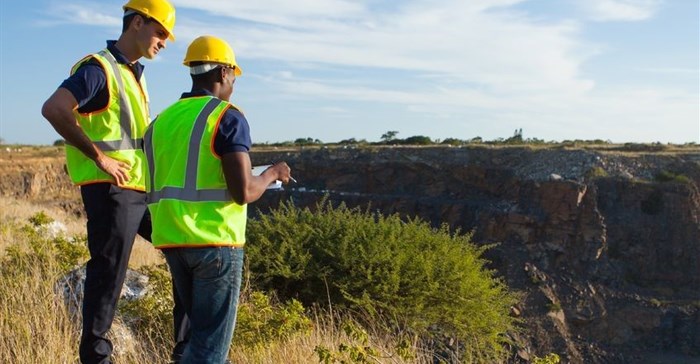There are currently several pieces of environmental legislation being updated or coming into force, with which the mining industry will be obliged to comply, such as the National Environmental Management Act (Nema) regulations - including new legislation around mine rehabilitation - and the Carbon Tax Act.
As a prequel to its annual think tank, The Joburg Indaba team gathered for a discussion, sharing industry insights and paving the way for the main event in October.
Old habits die hard
The industry can no longer put its head in the sand as the new Bill will be passed in the near future. "Issues like climate change and carbon tax are not going away. It may be a while before we can see all the implications, but by 2020 we will have legislation around these challenges and companies need to begin to take action now instead of adopting a wait and see approach," said Garyn Rapson, partner, environment & natural resources, Webber Wentzel.
He was supported by Carlyn Davies, director, Natural Resources and Environmental Department, ENSafrica, who pointed out that old habits are being curtailed in the new legislation: "Often companies just include in their budget that they will have to pay a fine, so these amendments have increased the fines to a maximum of R10m and for those companies for whom this is still not a deterrent, the minister can now cease activities at the mine in question."
The industry needs to take responsibility, carry out proper assessments and build technical solutions that work instead of leaving all regulation to the DMR: "How do we make decisions and regulate complexities? The only way is for everyone to take responsibility. Our intent is the same. When you mine you have a responsibility, you don't need to wait for regulations, do things now and budget for that. As an industry don’t look for minimum compliance. Be responsible," said Ben Burnand, managing director, The MSA Group.
Enforcement is key
Challenges remain, as pointed out by Reuben Masenya, director of mine closure, Department of Mineral Resources: "Previously we had no enforcement branch, but we are learning from the past and enforcement is now key; without it, event the best legislation cannot work. We depend on taxpayers' money so we haven't reached a point where we have sufficient budget yet, but government is aware of this and taking cognizance. We also want to work alongside industry, so wherever possible, that is what we do."
Izak van der Walt, chief financial officer, Wescoal Holdings Limited, supports the legislation and the trend towards One Environmental System that involves simplifying and integrating the processes but says the devil is in the details: "There are flaws relating to the timing and synchronising of the different pieces of legislation and getting all the role players to engage and align. We need proper defined plans and the proof is always in the execution."
Financial provisioning
The new proposed section 24PA proposes that the minister of mineral resources may approve "drawdowns" of financial provisioning to support final decommissioning and closure from a period of 10 years prior to the expected date for final decommissioning and closure. Unlocking the funds set aside for rehabilitation has been a gripe of the mining industry for many years and it seems that these concerns have been heard, but many questions remain.
"Having provisioning for drawdowns would encourage mines to take more action. When funds are not accessible then the industry is more conservative and we've already agreed we need to go beyond just compliance. If we have access to funding, capital investment is more likely," he said.
There is also the possibility of making financial provisioning payments to a closure rehabilitation company as a suitable financial vehicle, which would create a new specialist rehabilitation industry in the country.
Mine closure could become a feasible economic activity, offering massive job creation. "We are talking about billions being available with all the work required. If we can find a mechanism that means funds aren't locked up until final mine closure and are more accessible, it opens up the possibility of multiple thousands of jobs. It's a superb opportunity with massive potential," said Burnand
In conclusion, it is vital that mining houses start to prepare now to comply with existing and future legislation and to ensure the protection of directors and managers from possible fines imposed for a breach of environmental regulations.
The Joburg Indaba takes place on 3-4 October 2018 at the Inanda Polo Club Johannesburg.


































